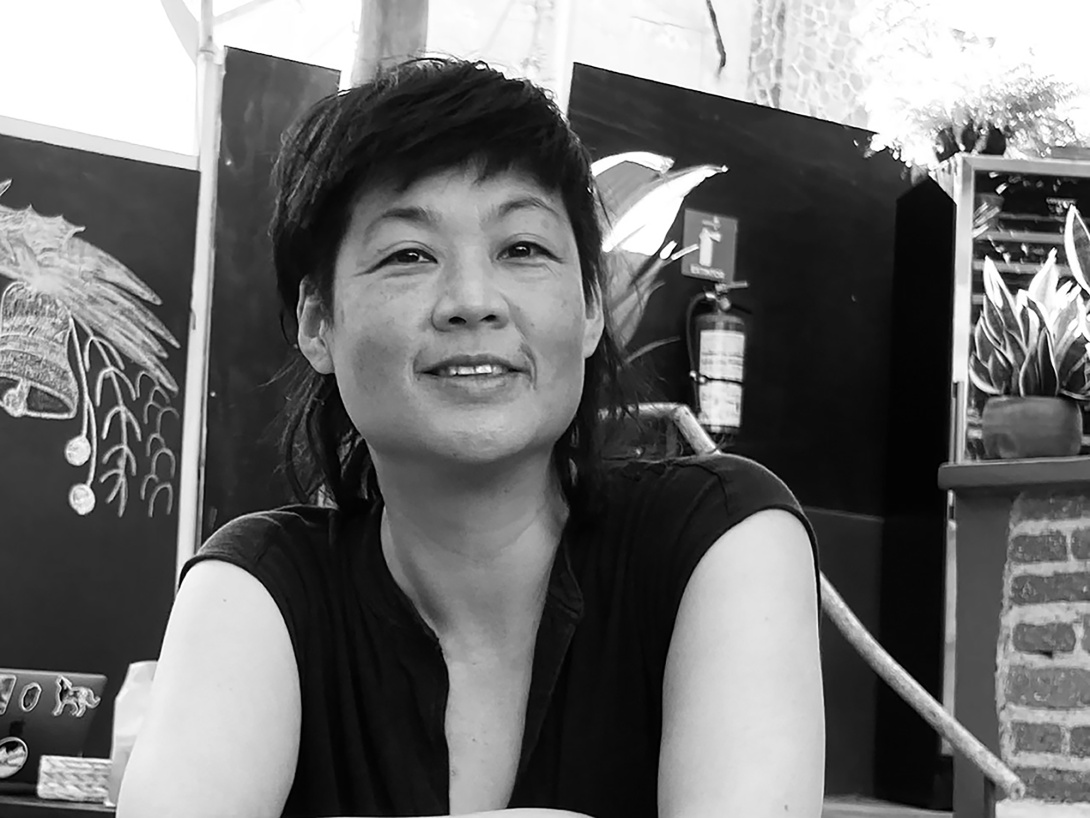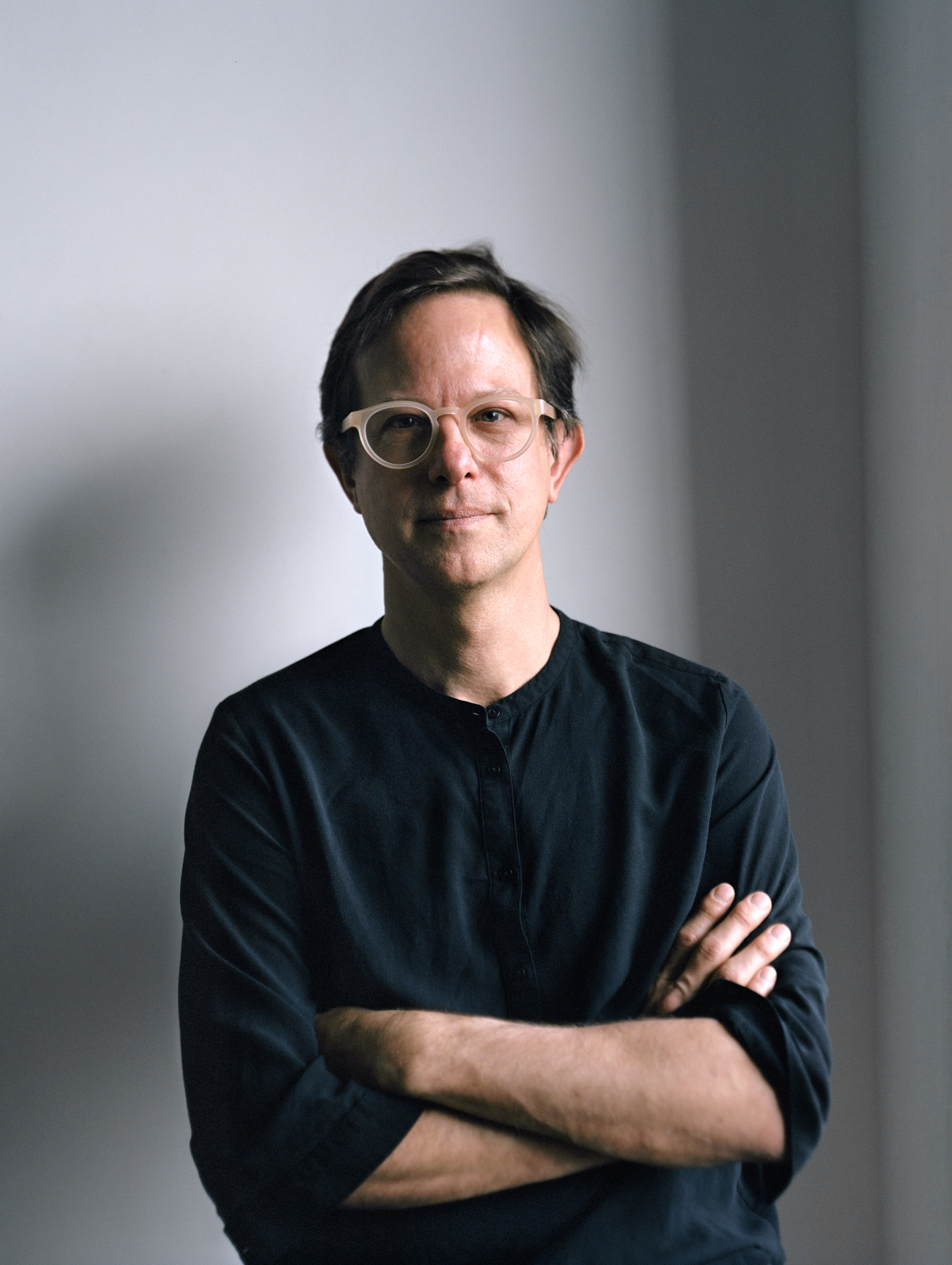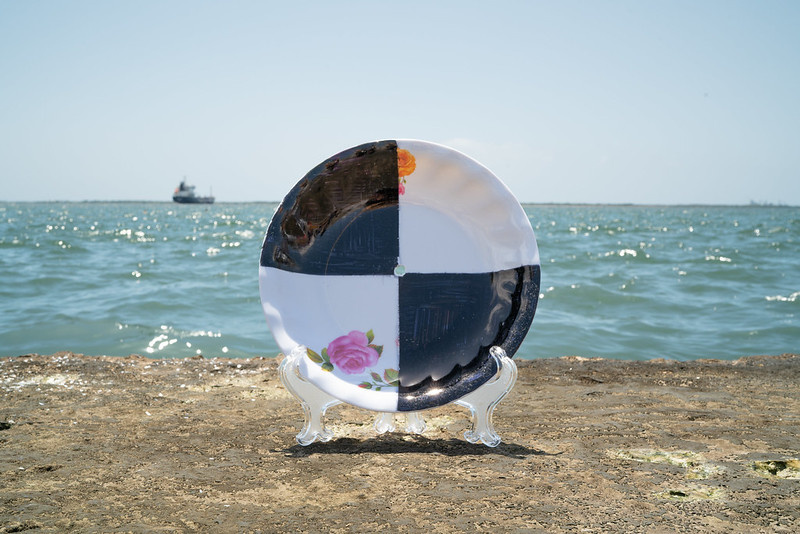The San José Museum of Art (SJMA) will present Beta Space: Patty Chang and David Kelley from November 1, 2024 through June 1, 2025. Taking the form of an open laboratory, Chang and Kelley’s newest multimedia installation features their first inquiry into a site without human inhabitants: the deep sea. Organized by SJMA assistant curator, Juan Omar Rodriguez, Chang and Kelley’s exhibition explores the animal and mineral pasts, presents, and futures of the deep sea and urgently addresses the loops—of scientific discovery, resource extraction, and technological development—that connect us with the more-than-human.
“Taking a poetic approach to the loops that bind our lives with the deep sea, Chang and Kelley invite us to think critically about our responsibilities to other forms of life as we navigate multiple climate crises,” said Juan Omar Rodriguez, SJMA’s assistant curator.
The artists will premiere the first iteration of their newest multidisciplinary project, Stray Dog Hydrophobia (2024). The project revolves around the question of how to imagine a more-than-human relationship to the ocean floor. “What does this relationship look like,” ask Chang and Kelley, “in relation to technology, law, electrification, and cycles of extraction?”
This inquiry was inspired by the increasing demands for electric cars globally and particularly in California. With pressures rising to pivot away from fossil fuels and as terrestrial mining becomes more difficult, automakers and other parties are increasingly interested in extracting cobalt, nickel, manganese, and other minerals needed for making and maintaining electric vehicles from more remote sites, such as the ocean floor. With the growing interest in deep sea mining, the International Seabed Authority (ISA) is working to draft regulations to permit deep sea mining within the next few years.
With Stray Dog Hydrophobia, Chang and Kelley will situate the recent activities of the ISA within increasing scales of time—the immediate climate crisis; thirty years of the ISA’s legislative efforts; 150 years of modern oceanography, beginning with the 1872 expedition of the HMS Challenger, which also facilitated the discovery of the mineral trove in the Pacific Ocean; and the millions of years it took for organic matter, such as shark teeth, to become the potato-sized nodules of rare minerals coveted by mining companies and automakers today.
The presentation of Stray Dog Hydrophobia at SJMA will feature a new film, comprised of footage of the International Seabed Authority’s convenings in Kingston, Jamaica; visits to the HMS Challenger collections at the Natural History Museum in London and the Oxford University Museum of Natural History; and a 3-D animation. Housed within a large wooden structure with kinetic elements and accompanied by glass and ceramic sculptures featuring specimens from the Scripps Institution of Oceanography, this multimedia installation will model an open laboratory that weaves these various threads of research and scales of time together.
This exhibition is the eighth iteration of the Museum’s “Beta Space” series, an ongoing program that supports artistic experimentation as they prototype, test, and iterate new ways of thinking and making. Inspired by the legendary Silicon Valley garage, "Beta Space” invites audiences into the artistic process. Recent “Beta Space” artists include Trevor Paglen (2021), Pae White (2020), and Victor Cartagena (2017).
ABOUT THE ARTISTS
PATTY CHANG
Patty Chang is an artist and educator based in Los Angeles. She explores questions about gender, colonial legacies, and the environment through performance, video, photography, and installation. Chang earned a BA from the University of California, San Diego in 1994. Her work has been exhibited extensively, including solo exhibitions at the Henry Art Gallery, Seattle, WA (2022); Macalline Art Center, Beijing, China (2022); Institute of Contemporary Art, Los Angeles (2019); Queens Museum, New York (2017); MoMA, New York (2014); New Museum, New York (2005); and the Museo Nacional Centro de Arte Reina Sofia, Madrid, Spain (2000), among many others. Chang has received many awards and fellowships, including an Art + Technology Grant from LACMA (2023), the Nancy Graves Grant for Visual Artists (2020), a United States Artists Fellowship (2020), an Anonymous Was a Woman Grant (2018), a John Simon Guggenheim Memorial Foundation Fellowship (2014), and a Creative Capital Foundation Grant (2012), among many others. She teaches at the University of Southern California in Los Angeles.
DAVID KELLEY
David Kelley is an artist and educator based in Los Angeles. He explores global capitalism and resource extraction through photography, video, and installation. Kelley earned an MFA from the University of California, Irvine and participated in the Whitney Museum of American Art’s Independent Study Program in 2011. His work has been exhibited extensively, including solo exhibitions at Shekmai Art Space, Dongguan, China (2019); Arrow Factory, Beijing, China (2018); MoMA, New York (2014); and Franco Soffiantino Arte Contemporenea, Turin, Italy (2007), among others. He has received many awards and fellowships, including an Art + Technology Grant from LACMA (2023), a Marion and Jasper Whiting Foundation Fellowship (2015), and an Andrew A. Mellon Innovation Grant (2011), among others. He teaches at the University of Southern California in Los Angeles.
SUPPORT
Beta Space: Patty Chang and David Kelley is made possible by the SJMA Exhibitions Fund, with major support from Kimberly and Patrick Lin, and generous support from Wanda Kownacki.
Operations and programs at the San José Museum of Art are made possible by principal support from SJMA’s Board of Trustees, a Cultural Affairs Grant from the City of San José, and the Lipman Family Foundation; by lead support from the Adobe Foundation, the California Arts Council, Toby and Barry Fernald, Brook Hartzell and Tad Freese, the Institute of Museum and Library Services, the Richard A. Karp Charitable Foundation, Tammy and Tom Kiely, the Knight Foundation, Evelyn and Rick Neely, Yvonne and Mike Nevens, the David and Lucile Packard Foundation, the Skyline Foundation, the Andy Warhol Foundation for the Visual Arts, and the SJMA Director's Council and Council of 100; and with significant endowment support from the William Randolph Hearst Foundation and the San José Museum of Art Endowment Fund established by the Knight Foundation at the Silicon Valley Community Foundation.
SAN JOSE MUSEUM OF ART
The San José Museum of Art (SJMA) is a modern and contemporary art museum dedicated to inclusivity, new thinking, and visionary ideas. Founded in 1969 by artists and community leaders, its dynamic exhibitions, collection, and programs resonate with defining characteristics of San José and the Silicon Valley—from its rich diversity to its hallmark innovative ethos. The Museum offers lifelong learning for school children and their educators, multigenerational families, creative adults, university students and faculty, and community groups. SJMA is committed to being a borderless museum, essential to creative life throughout the diverse communities of San José and beyond.
SJMA is located on the Plaza de Cesar Chavez at 110 South Market Street in downtown San José. The Museum is open Thursday 4–9pm; Friday 11am–9pm; Saturday–Sunday 11am–6pm. Admission is $20 for adults, $15 for seniors, and free to members, college students, youth and children ages 17 and under, and school teachers (with valid ID). Admission is free from 6–9pm on the first Friday of every month. For up-to-date information, call 408.271.6840 or visit SanJoseMuseumofArt.org.



